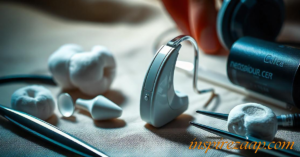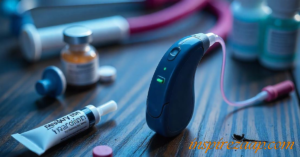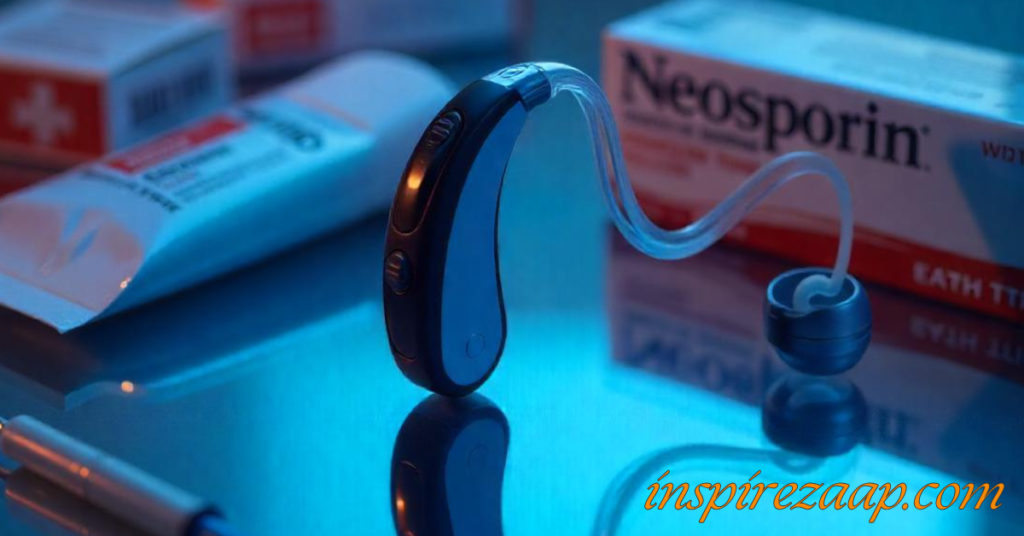Hearing aids are essential devices for millions of people who rely on them to hear clearly and participate fully in everyday life. The comfort and cleanliness of hearing aids, especially the domes that sit in the ear canal, are critical to maintaining ear health. Many people wonder if using Neosporin or similar antibiotic ointments can help with discomfort or irritation in the ear canal. This article explores whether it’s safe to use Neosporin in hearing aid domes, what precautions to take, and effective alternatives for ear care.
Understanding Hearing Aid Domes and Ear Health
Hearing aid domes are small, soft attachments that fit onto the end of the hearing aid that sits in the ear canal. Their role is to seal the ear canal slightly, ensuring that sound is directed into the ear without interference. Over time, these domes can accumulate earwax, bacteria, and dirt, leading to irritation, itching, or even mild infections.
Common Issues With Hearing Aid Domes:
- Irritation and Discomfort: Friction from wearing hearing aids can sometimes lead to minor irritation in the ear canal.
- Infections: When domes are not cleaned regularly, bacteria can build up, potentially causing ear infections.
- Allergic Reactions: Some individuals may react to the materials in hearing aid domes, causing discomfort.
Is It Safe to Use Neosporin on Hearing Aid Domes?
Short Answer: It’s generally not recommended to use Neosporin directly on hearing aid domes.
Neosporin is a topical antibiotic that can help prevent infection in cuts or scrapes, but it’s formulated for use on external skin rather than inside the ear canal. Applying Neosporin inside the ear or on hearing aid domes can lead to several complications:

- Residue Buildup: Neosporin is greasy, and using it on the domes can lead to a buildup of residue that may affect sound quality or clog the hearing aid.
- Increased Moisture: The greasy nature of Neosporin can trap moisture in the ear canal, creating an environment where bacteria and fungi thrive.
- Risk of Allergic Reactions: Some people may be allergic to ingredients in Neosporin, which could worsen ear irritation.
In Summary: While it may be tempting to use Neosporin to soothe irritation, it is generally not safe or effective when applied to hearing aid domes or inside the ear canal.
Safety Tips for Maintaining Hearing Aid Domes
To keep hearing aid domes clean and prevent irritation, follow these safe practices:
- Clean Regularly: Remove and clean the domes daily with a dry, lint-free cloth. For deeper cleaning, you can use an approved hearing aid cleaning solution as directed by your audiologist.
- Replace Domes Periodically: Hearing aid domes wear down over time. Replacing them every few months or as recommended by your audiologist can help maintain comfort and hygiene.
- Avoid Moisture: Keep domes dry, as moisture can lead to bacterial or fungal growth. Store hearing aids in a dehumidifying case overnight to ensure dryness.
- Use a Hearing Aid-Friendly Lubricant: If dryness or irritation is a problem, try using a hearing aid lubricant specifically designed for use with hearing aids and ear canals. These are generally water-based, hypoallergenic, and safe for regular use.
Alternatives to Neosporin for Ear Discomfort
Instead of Neosporin, consider these alternatives if you experience ear discomfort:
- Hearing Aid Lubricants: Specially formulated lubricants, such as Oto-Ease or Audiologist’s Choice, can reduce friction and ease discomfort without leaving residue.
- Antiseptic Ear Spray: Consult with your audiologist about using a mild antiseptic ear spray to clean the ear canal and prevent infections without causing buildup on your hearing aids.

- Medicated Ear Drops: If irritation is due to a minor infection, over-the-counter ear drops designed for the ear canal can be helpful. Always seek advice from a healthcare professional before using any medicated drops.
- Consult a Professional: If you experience ongoing discomfort or signs of infection, such as pain, redness, or discharge, it’s best to consult an audiologist or ear, nose, and throat (ENT) specialist for a proper diagnosis and treatment.
When to Seek Medical Help
If ear discomfort persists despite trying alternatives, or if you notice symptoms such as:
- Persistent pain
- Redness or swelling
- Pus or foul-smelling discharge from the ear canal
- Fever
These signs could indicate a more serious ear infection or allergic reaction. Seeking professional medical help is essential to ensure you receive the appropriate treatment and prevent further complications.
Conclusion
While it might seem practical, using Neosporin in hearing aid domes is not advisable due to the risks associated with residue buildup, moisture retention, and potential allergic reactions. Proper ear hygiene, regular cleaning, and using hearing aid-safe lubricants can help prevent irritation and infections without compromising the function of your hearing aids. Always consult a healthcare professional before applying any product to your hearing aid domes or ear canal, ensuring that your hearing aids provide maximum comfort and clarity.


